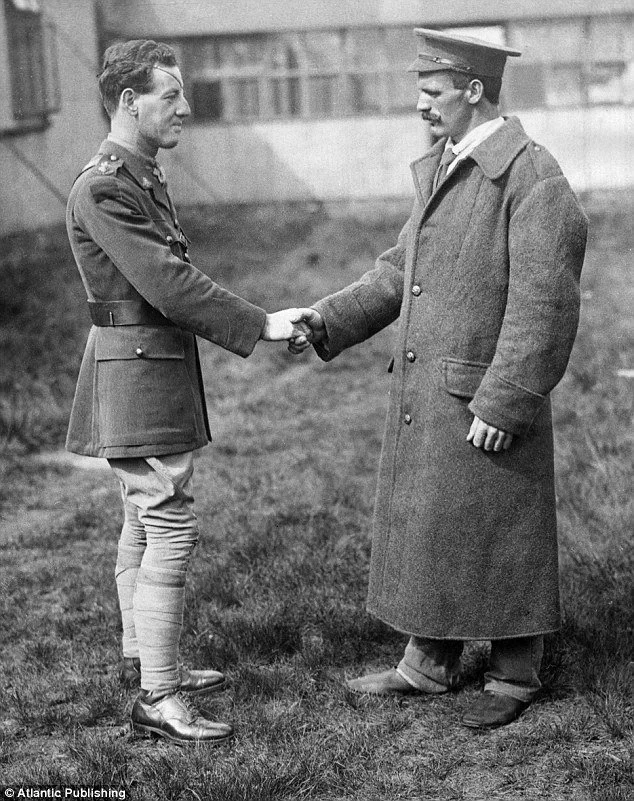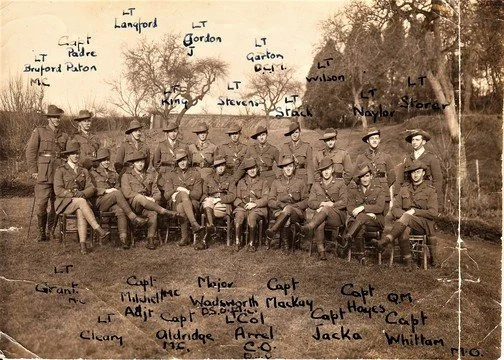Albert Jacka VC was an extraordinary Australian soldier who demonstrated exceptional bravery and valor during World War I. Born on January 10, 1893, in a small town called Winchelsea, Victoria, Jacka grew up in a close-knit family. He was the fourth of seven children and was raised in a modest household.
As a young man, Jacka worked as a clerk before enlisting in the Australian Imperial Force (AIF) in September 1914, soon after the outbreak of World War I. He was assigned to the 14th Battalion, which was part of the Australian and New Zealand Army Corps (ANZAC).
Jacka underwent training in Egypt and, in April 1915, his battalion was deployed to Gallipoli, a pivotal campaign in the war. It was at Gallipoli that Jacka's courage and heroism came to the forefront. During the Battle of Courtney's Post on May 19, 1915, Jacka performed an astonishing act of bravery. When the Turkish forces launched a fierce counter-attack, Jacka, armed with only his rifle and bayonet, single-handedly fought off the enemy and successfully regained control of the trench. His actions saved the lives of his fellow soldiers and earned him the respect and admiration of his comrades.
For his remarkable act of valor, Albert Jacka became the first Australian soldier to be awarded the Victoria Cross during World War I. The Victoria Cross is the highest military honor bestowed upon members of the British and Commonwealth armed forces for acts of exceptional bravery in the face of the enemy.
Albert Jacka VC (left) meets Private O'Meara VC, who is another Australian to win the coveted distinction in 1916. Jacka had just been awarded the Military Cross for valiantly attacking a vastly superior German force, sustaining serious wounds in the process
After the Gallipoli campaign, Jacka's unit was sent to the Western Front in France and Belgium. He continued to exhibit incredible bravery during the Battle of Pozières in 1916. Leading his men in the assault on a heavily fortified German trench, Jacka personally eliminated several enemy soldiers and successfully captured the position.
Throughout his military service, Jacka displayed not only physical courage but also exceptional leadership skills. He was highly respected by his comrades and officers for his fearlessness and dedication to duty. Despite being wounded several times, Jacka consistently returned to the front lines to fight alongside his fellow soldiers.
After the war, Albert Jacka returned to Australia and settled in St. Kilda, Victoria. He became involved in local politics and community service, advocating for the welfare of veterans and serving as a councilor. However, the war had taken its toll on Jacka, both physically and mentally. He struggled with the effects of post-traumatic stress disorder (PTSD) and faced personal challenges in readjusting to civilian life.
Albert Jacka passed away on January 17, 1932, at the age of 39 due to kidney failure. His funeral was attended by a large number of people, reflecting the deep respect and admiration he had earned throughout his life.
The legacy of Albert Jacka VC remains significant in Australia's military history. His remarkable acts of bravery and selflessness have left an indelible mark on the nation's consciousness. He is remembered as an iconic Australian war hero, a symbol of courage, and an inspiration for generations to come. His Victoria Cross, along with his unwavering dedication to his comrades and his country, ensures that Albert Jacka's name will forever be associated with valor and heroism.










